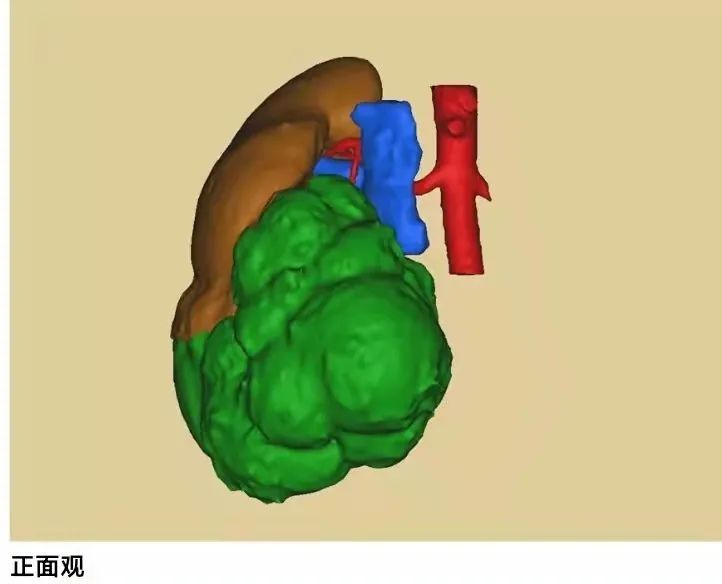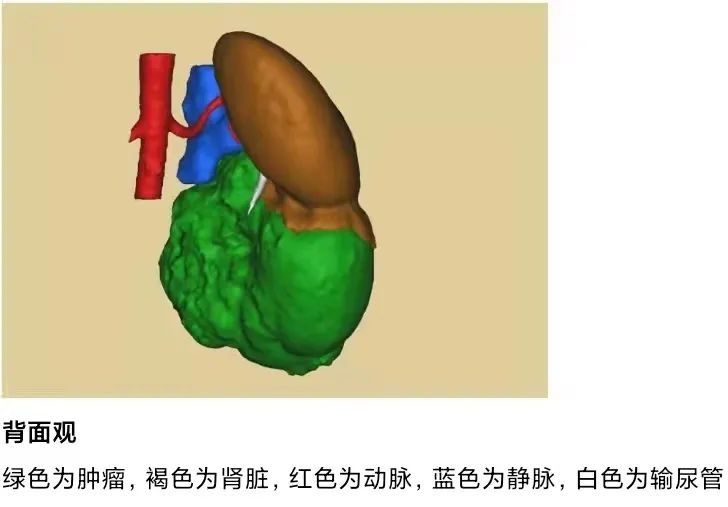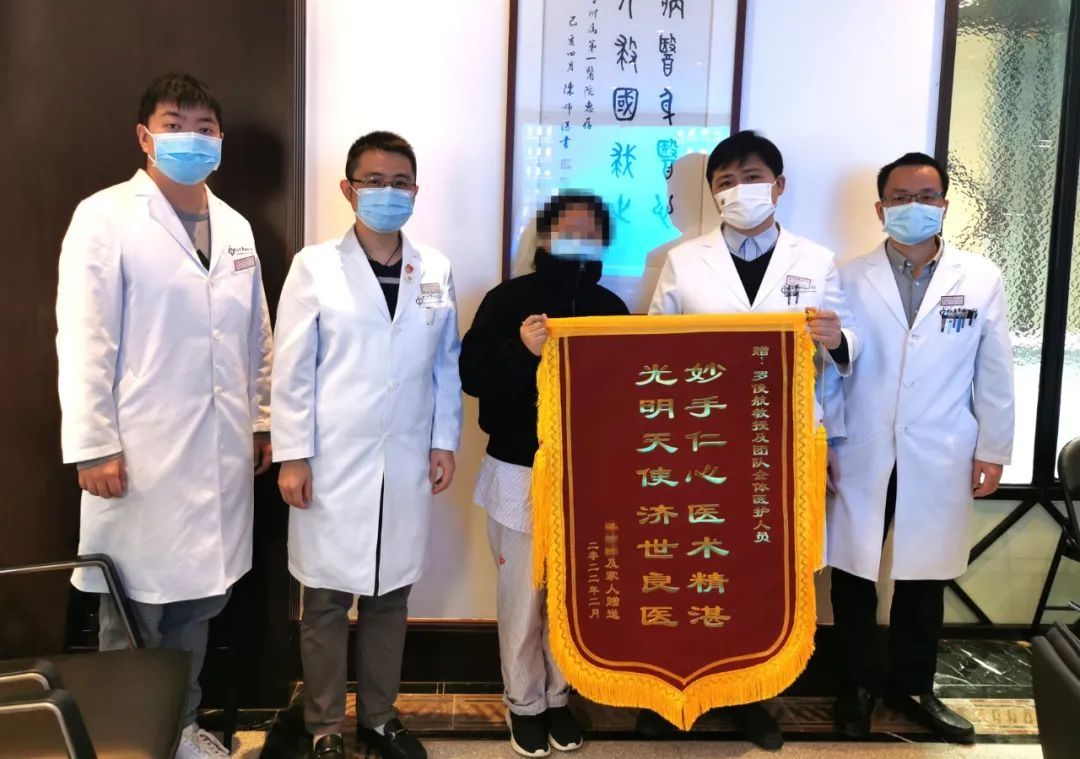The 40-year-old Ms. Zhang (surname changed) had a physical examination two years ago, and it was revealed that she had a 6 cm renal cyst in the right kidney. She did not go to the specialist in time for her “big heart”, and the tumor had grown to 15 cm without knowing it. And oppress the renal hilum vessels, inferior vena cava, bowel, the operation is unprecedentedly difficult. Fortunately, under the treatment of the urology surgeon of the First Affiliated Hospital of Sun Yat-sen University, she was successfully resected the tumor to preserve the kidney and has been discharged from the hospital.
I didn’t care about the cyst when the physical examination found out more than two years ago
The re-examination recently was kidney cancer
Ms. Zhang recalled that she had a B-ultrasound in a physical examination institution more than two years ago. , found a 6-centimeter cyst in the right kidney. Since she did not have any symptoms, she thought it was a common benign disease, so there was no further examination and treatment.
A few days ago, when she reexamined the cyst, she found that it had grown to 15 centimeters, and the growth rate was unusual. After further CT, she found that the renal cyst that she had always mistaken for was actually cystic kidney cancer. There are lumps of tumors hidden inside the water sacs.

Ms. Zhang consulted some urological specialists, and it is generally believed that kidney-preserving surgery is very difficult, and it is likely that a complete kidney is required. resection. After many inquiries, she came to the Department of Urology of the First Affiliated Hospital of Sun Yat-sen University for treatment. Professor Luo Junhang arranged for the patient to be admitted to the hospital for treatment after getting a detailed understanding of the patient’s condition.
Unprecedented surgical difficulty
Robot-assisted overcoming difficulties
Facing a 15 cm kidney tumor is undoubtedly a huge challenge for the team of doctors. The doctor said that, first of all, the tumor is huge, 1.5 times the size of the kidney, and it compresses the renal hilar blood vessels, inferior vena cava, and intestinal tract, making it difficult to separate and expose. As thin as paper, a little carelessness in the process of separation and excision will cause the cyst wall to be damaged, and the fluid and tumor cells in the cyst will flow to adjacent parts, causing postoperative tumor implantation and metastasis; finally, the operation requires complete removal of the huge tumor. , Suture large and deep wounds, carry out renal reconstruction, prevent postoperative bleeding and urine leakage, and avoid prolonged renal vascular blockage, resulting in irreversible damage to renal function after surgery.

On the day of the operation, the doctor overcame the difficulties with the help of the robot and the help of the 3D 15 times magnified field of vision, and successfully cut the patient Tumor protects the kidney. Postoperatively, the patient’s renal function re-examination was the same as that before surgery, and there were no complications, and the patient has been discharged successfully.

Doctor reminder:
Kidney cysts are very common and should be distinguished from cystic kidney cancer< /p>
According to doctors, renal cyst is a common benign disease in urology. 50% of adults over the age of 50 will be found to have renal cyst during physical examination. The vast majority of patients have no clinical symptoms. When the cyst is relatively small, it can be reviewed regularly and no special treatment is required.
Cystic kidney cancer and kidney cysts are two completely different things. Cystic kidney cancer refers to the form of kidney cancer that is equivalent to a cyst, which requires surgical resection as soon as possible.
Renal cysts are characterized by the normal shape of the cyst wall and the fluid in the cyst, and the cyst is single with no separation in the middle. If the cyst wall is not smooth and uneven, and there may be many partitions and masses in the middle of the cyst, then it is highly suspected that it is cystic renal cancer.
The doctor suggested that if there is the word “complex renal cyst” in the physical examination report, it is recommended to go to the urology department of the hospital, and ask a specialist to check, and whether it is cystic renal cancer can be identified by means such as enhanced CT.
New Express reporter Li Qiuling Correspondent Peng Fuxiang Liang Jiayun